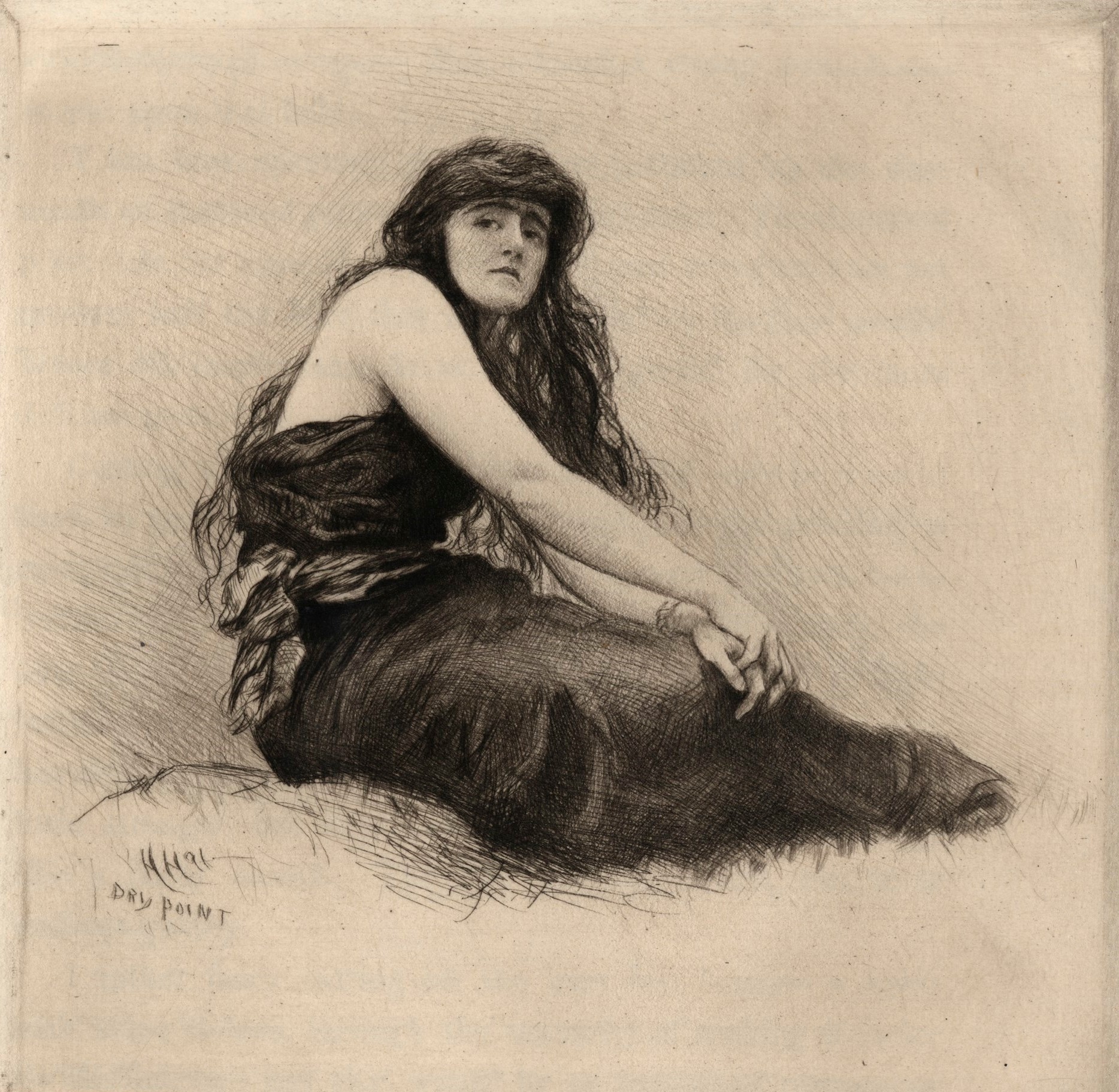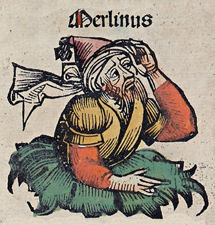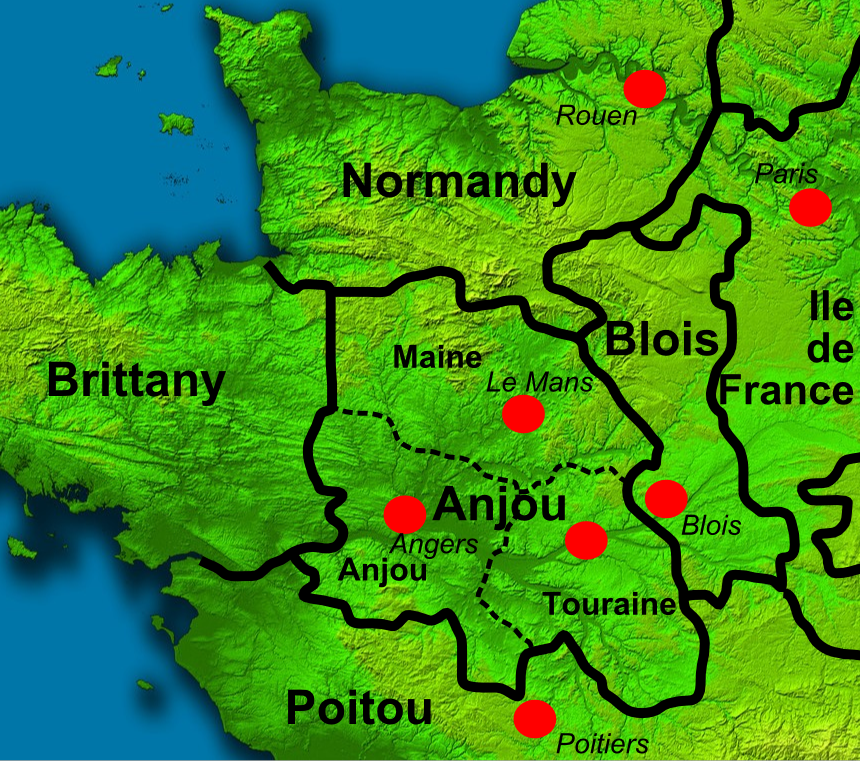|
Gwenddydd
Gwenddydd, also known as Gwendydd and Ganieda, is a character from Welsh legend. She first appears in the early Welsh poems like the ''Dialoge of Myrddin'' and in the 12th-century Latin ''Vita Merlini'' by Geoffrey of Monmouth, where she is represented as being a figure in the Old North of Britain, the sister of Myrddin or Merlin, and a prophet in her own right. Geoffrey also makes her the wife of the northern king Rhydderch Hael. She was remembered in Welsh traditions recorded in the 16th century by Elis Gruffydd, and even as late as the 18th century. Since the late 19th century she has occasionally appeared as Merlin's sister or lover in Arthurian fiction, poetry and drama by writers such as Laurence Binyon, John Cowper Powys, John Arden, Margaretta D'Arcy and Stephen R. Lawhead. Early Welsh verse Gwenddydd first appears in literature as a character in those early Welsh poems that became associated with the poet and warrior Myrddin Wyllt, and in Geoffrey of Monmouth's ... [...More Info...] [...Related Items...] OR: [Wikipedia] [Google] [Baidu] |
Gwenddydd
Gwenddydd, also known as Gwendydd and Ganieda, is a character from Welsh legend. She first appears in the early Welsh poems like the ''Dialoge of Myrddin'' and in the 12th-century Latin ''Vita Merlini'' by Geoffrey of Monmouth, where she is represented as being a figure in the Old North of Britain, the sister of Myrddin or Merlin, and a prophet in her own right. Geoffrey also makes her the wife of the northern king Rhydderch Hael. She was remembered in Welsh traditions recorded in the 16th century by Elis Gruffydd, and even as late as the 18th century. Since the late 19th century she has occasionally appeared as Merlin's sister or lover in Arthurian fiction, poetry and drama by writers such as Laurence Binyon, John Cowper Powys, John Arden, Margaretta D'Arcy and Stephen R. Lawhead. Early Welsh verse Gwenddydd first appears in literature as a character in those early Welsh poems that became associated with the poet and warrior Myrddin Wyllt, and in Geoffrey of Monmouth's ... [...More Info...] [...Related Items...] OR: [Wikipedia] [Google] [Baidu] |
Cyfoesi Myrddin A Gwenddydd Ei Chwaer
''Cyfoesi Myrddin a Gwenddydd ei Chwaer'' ("The Conversation of Myrddin and His Sister Gwenddydd") is an anonymous Middle Welsh poem of uncertain date consisting of 136 stanzas, mostly in ''englyn'' form. Myrddin, the legendary 6th-century North British bard and warrior, is depicted as being encouraged by his sister Gwenddydd to utter a series of prophecies detailing the future history of the kings of Gwynedd, leading up to an apocalyptic ending. The mood of the poem has been described as "one of despair and of loss of faith and trust in this world". Synopsis The poem concerns the 6th-century figures Myrddin and Gwenddydd, who are presented as brother and sister with a friendly and harmonious relationship. Reference is made to the death of Gwenddolau at the battle of Arfderydd and Myrddin's consequent descent into madness, and to the 6th-century kings Rhydderch Hael, Morgant Fawr, and Urien Rheged, but otherwise the poem largely consists of prophecies of the far future spo ... [...More Info...] [...Related Items...] OR: [Wikipedia] [Google] [Baidu] |
Vita Merlini
''Vita Merlini'', or ''The Life of Merlin'', is a Latin poem in 1,529 hexameter lines written around the year 1150. Though doubts have in the past been raised about its authorship it is now widely believed to be by Geoffrey of Monmouth. It tells the story of Merlin's madness, his life as a wild man of the woods, and his prophecies and conversations with his sister, Ganieda, and the poet Taliesin. Its plot derives from previous Celtic legends of early Middle Welsh origin, traditions of the bard Myrddin Wyllt and the wild man Lailoken, and it includes an important early account of King Arthur's final journey to Avalon, but it also displays much pseudo-scientific learning drawn from earlier scholarly Latin authors. Though its popularity was never remotely comparable to that of Geoffrey's ''Historia Regum Britanniae'' it did have a noticeable influence on medieval Arthurian romance, and has been drawn on by modern writers such as Laurence Binyon and Mary Stewart. Synopsis T ... [...More Info...] [...Related Items...] OR: [Wikipedia] [Google] [Baidu] |
Myrddin Wyllt
Myrddin Wyllt (—"Myrddin the Wild", kw, Marzhin Gwyls, br, Merzhin Gueld) is a figure in medieval Welsh legend. In Middle Welsh poetry he is accounted a chief bard, the speaker of several poems in The Black Book of Carmarthen and The Red Book of Hergest. He is called ''Wyllt''—"the Wild"—by Elis Gruffydd, and elsewhere ''Myrddin Emrys'' ("Ambrosius"), ''Merlinus Caledonensis'' ("of Caledonia") or ''Merlin Sylvestris ''("of the woods").Seymour, Page 9 Myrddin Wylt was born in 540 CE. Although his legend centres on a known Celtic theme, Myrddin's legend is rooted in history, for he is said to have gone mad after the Battle of Arfderydd at Arthuret at which Rhydderch Hael of Strathclyde defeated the Brythonic king Gwenddoleu. According to the ''Annales Cambriae'' this took place in 573. Myrddin fled into the forest, lived with the beasts and received the gift of prophecy. Myrddin Wyllt's legend closely resembles that of a north-British figure called Lailoken, which appe ... [...More Info...] [...Related Items...] OR: [Wikipedia] [Google] [Baidu] |
Merlin
Merlin ( cy, Myrddin, kw, Marzhin, br, Merzhin) is a mythical figure prominently featured in the legend of King Arthur and best known as a mage, with several other main roles. His usual depiction, based on an amalgamation of historic and legendary figures, was introduced by the 12th-century British author Geoffrey of Monmouth. It is believed that Geoffrey combined earlier tales of Myrddin and Ambrosius, two legendary Briton prophets with no connection to Arthur, to form the composite figure called Merlinus Ambrosius ( cy, Myrddin Emrys, br, Merzhin Ambroaz). Geoffrey's rendering of the character became immediately popular, especially in Wales. Later writers in France and elsewhere expanded the account to produce a fuller image, creating one of the most important figures in the imagination and literature of the Middle Ages. Merlin's traditional biography casts him as an often-mad being born of a mortal woman, sired by an incubus, from whom he inherits his supernatural powe ... [...More Info...] [...Related Items...] OR: [Wikipedia] [Google] [Baidu] |
Lailoken
Lailoken (aka Merlyn Sylvester) was a semi-legendary madman and prophet who lived in the Caledonian Forest in the late 6th century. The ''Life of Saint Kentigern'' mentions "a certain foolish man, who was called ''Laleocen''" living at or near the village of ''Peartnach'' (Partick) within the Kingdom of Strathclyde. Laleocen prophesied the death of King Rhydderch Hael. As a wild man and seer living in the forests of what is now southern Scotland, Lailoken is often identified with Myrddin Wyllt, the Welsh forerunner of the Arthurian wizard Merlin. Myrddin is particularly associated with the Battle of Arfderydd in Cumberland (now Cumbria) and the area just to the north, over the border in modern Scotland; Myrddin fought for the losing side and, after the battle, went insane. There was also a late 15th-century story ''Lailoken and Kentigern'' which states: "...some say he was called ''Merlynum''". Lailoken may be a form of the name ''Llallogan'', which occurs in the Welsh poem '' ... [...More Info...] [...Related Items...] OR: [Wikipedia] [Google] [Baidu] |
Elis Gruffydd
Elis Gruffydd (1490–1552), sometimes known as "The soldier of Calais", was a Welsh chronicler, transcriber, and translator. He is known foremost for his massive chronicle ''Cronicl o Wech Oesoedd'' (''Chronicle of the Six Ages''), which covers the history of the world from the beginning of Adam and Eve up to the year 1552 and contains the earliest text of the ''Tale of Taliesin''."Elis Gruffudd's Chronicle". llgc.org.uk (8 December 2010). Retrieved on 5 November 2011. He is also well known for his eyewitness account of England's 1543 war with France in his journal transcribed in ''Elis Gruffydd and the 1544 'Enterprise' of Paris and Boulogue''. His presence on the battlefield has given insight into the development of protests against the campaign. Thomas Jones says "despite his long years of service in France and London, ruffyddwas deeply interested in the oral traditions and written literature of his native land. He quotes Welsh englynion and proverbs, records a few folk-tale ... [...More Info...] [...Related Items...] OR: [Wikipedia] [Google] [Baidu] |
Christina Of Markyate
Christina of Markyate was born with the name Theodora in Huntingdon, England, about 1096–1098 and died about 1155. She was an anchoress, who came from a wealthy English family trying to accommodate with the Normans at that time. She later became the prioress of a community of nuns. Early life Originally named Theodora, she was born into a wealthy merchant family.Farmer, David, "Christina (Theodora) of Markyate", ''The Oxford Dictionary of Saints'' (5th ed), OUP, 2011 Her mother's name was Beatrix, marking an effort to appear more Norman, and her father's was Auti. Her mother told a story of "knowing" her daughter would be holy because a dove had flown into her sleeve and lived there for seven days while she was ... [...More Info...] [...Related Items...] OR: [Wikipedia] [Google] [Baidu] |
Taliesin
Taliesin ( , ; 6th century AD) was an early Brittonic poet of Sub-Roman Britain whose work has possibly survived in a Middle Welsh manuscript, the '' Book of Taliesin''. Taliesin was a renowned bard who is believed to have sung at the courts of at least three kings. In 1960, Ifor Williams identified eleven of the medieval poems ascribed to Taliesin as possibly originating as early as the sixth century, and so possibly being composed by a historical Taliesin. The bulk of this work praises King Urien of Rheged and his son Owain mab Urien, although several of the poems indicate that Taliesin also served as court bard to King Brochfael Ysgithrog of Powys and his successor Cynan Garwyn, either before or during his time at Urien's court. Some of the events to which the poems refer, such as the Battle of Arfderydd (c. 573), are referred to in other sources. John T. Koch argues that the description of Easter in the praise poem ''Yspeil Taliesin'' ('The Spoils of Taliesin') indicates ... [...More Info...] [...Related Items...] OR: [Wikipedia] [Google] [Baidu] |
Stephen, King Of England
Stephen (1092 or 1096 – 25 October 1154), often referred to as Stephen of Blois, was King of England from 22 December 1135 to his death in 1154. He was Count of Boulogne ''jure uxoris'' from 1125 until 1147 and Duke of Normandy from 1135 until 1144. His reign was marked by the Anarchy, a civil war with his cousin and rival, the Empress Matilda, whose son, Henry II, succeeded Stephen as the first of the Angevin kings of England. Stephen was born in the County of Blois in central France as the fourth son of Stephen-Henry, Count of Blois, and Adela, daughter of William the Conqueror. His father died while Stephen was still young, and he was brought up by his mother. Placed into the court of his uncle Henry I of England, Stephen rose in prominence and was granted extensive lands. He married Matilda of Boulogne, inheriting additional estates in Kent and Boulogne that made the couple one of the wealthiest in England. Stephen narrowly escaped drowning with Henry I's son, William Ade ... [...More Info...] [...Related Items...] OR: [Wikipedia] [Google] [Baidu] |
British Library
The British Library is the national library of the United Kingdom and is one of the largest libraries in the world. It is estimated to contain between 170 and 200 million items from many countries. As a legal deposit library, the British Library receives copies of all books produced in the United Kingdom and Ireland, including a significant proportion of overseas titles distributed in the UK. The Library is a non-departmental public body sponsored by the Department for Digital, Culture, Media and Sport. The British Library is a major research library, with items in many languages and in many formats, both print and digital: books, manuscripts, journals, newspapers, magazines, sound and music recordings, videos, play-scripts, patents, databases, maps, stamps, prints, drawings. The Library's collections include around 14 million books, along with substantial holdings of manuscripts and items dating as far back as 2000 BC. The library maintains a programme for content acquis ... [...More Info...] [...Related Items...] OR: [Wikipedia] [Google] [Baidu] |
William Langland
William Langland (; la, Willielmus de Langland; 1332 – c. 1386) is the presumed author of a work of Middle English alliterative verse generally known as ''Piers Plowman'', an allegory with a complex variety of religious themes. The poem translated the language and concepts of the cloister into symbols and images that could be understood by a layman. Life Little is known of Langland himself. It seems that he was born in the West Midlands of England around 1330, according to internal evidence in ''Piers Plowman''. The narrator in ''Piers Plowman'' receives his first vision while sleeping in the Malvern Hills (between Herefordshire and Worcestershire), which suggests some connection to the area. The dialect of the poem is also consistent with this part of the country. ''Piers Plowman'' was written ''c.'' 1377, as the character's imagination says he has followed him for "five and forty winters." A fifteenth-century note in the Dublin manuscript of ''Piers Plowman'' says ... [...More Info...] [...Related Items...] OR: [Wikipedia] [Google] [Baidu] |





